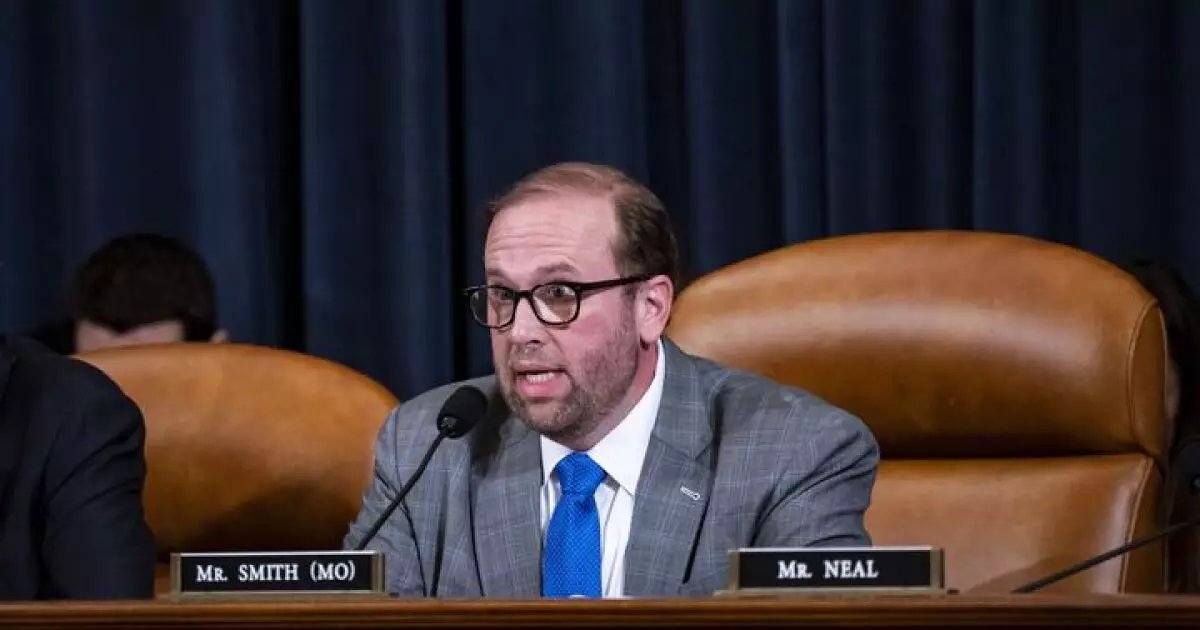As the 119th Congress commences its deliberations, the House Ways and Means Committee has turned its attention to an essential topic: the sustainability and future of the Tax Cuts and Jobs Act (TCJA). This pivotal legislation, passed in 2017 during Donald Trump’s presidency, aimed to invigorate the American economy by slashing corporate tax rates and providing tax relief to individuals. However, today’s lawmakers are confronted with a challenging dichotomy: should they prioritize fiscal responsibility, which includes managing the national debt, or risk stunting economic growth by heavily taxing corporations and affluent individuals?
A High-Stakes Debate: Economic Growth vs. National Debt
The implications of the ongoing tax debate are profound, especially for stakeholders in the municipal finance sector. Many advocates express concerns that the long-standing tax-exempt status of municipal bonds may come under scrutiny as legislators look for ways to offset revenue losses tied to the TCJA’s possible extension. Reflecting on the past, Committee Chairman Jason Smith lauds the tax cuts as instrumental in lifting the U.S. economy out of stagnation, producing notable results such as higher wages, lower unemployment across demographics, and historic reductions in poverty levels. He argues that tax cuts served as “rocket fuel” for America, emphasizing the need to continue this trajectory of growth.
On the other hand, critics of the TCJA, primarily from the Democratic side, assert that such growth came at an untenable cost—an inflated national debt that now looms large over future generations. Richard Neal, the ranking Democrat on the Committee, questions the logic of pursuing further tax cuts while simultaneously aiming to decrease the national debt. Such remarks underscore an essential tension in the debate; as policymakers wrestle with the implications of borrowing against future growth, they must also consider the immediate impact tax policy can have on national fiscal health.
One of the critical areas of contention within the TCJA involves provisions that directly affect the municipal finance community. The elimination of advanced refunding for tax-exempt bonds and the controversial $10,000 cap on state and local tax (SALT) deductions have raised alarm bells among municipal advocates. These provisions pose significant challenges for local governments seeking to finance essential public services. In times of economic disparity, tax-exempt municipal bonds have represented a crucial tool for funding infrastructure without directly burdening taxpayers.
While there is bipartisan recognition of the importance of maintaining middle-class tax rates, the conversation around corporate tax rates remains highly contentious. The potential for adjustments in both the corporate tax rate and SALT deductions signifies that lawmakers are still in the early stages of negotiation. Members of the Republican Party continue to seek avenues to demonstrate the economic benefits of extending the TCJA, enlisting small business owners and tax professionals to advocate for the current structure, notably by spotlighting the proposed retention of the Child Tax Credit.
Contrasting Visions of Fiscal Responsibility
Democrats, on the other hand, assert that to mitigate the national debt, there needs to be a concerted effort to raise taxes on wealthy individuals and corporations. This proposal typically garners resistance from Republican lawmakers, who argue that higher taxes stifle economic growth. The philosophical divide between the two parties mirrors broader tensions in ideologies surrounding fiscal policy: should the government prioritize growth at the expense of increasing the national debt, or should it embark on a more austere path that emphasizes revenue generation?
The dilemma is compounded in light of future discussions surrounding the increasing national debt ceiling, which directly affects the nation’s credit rating. Raising this ceiling presents stark choices: it either runs the risk of incurring higher debt or necessitates a tightening of fiscal policies that may lead to economic stagnation.
Moreover, the recent announcement of subcommittee chair assignments offers insight into the priorities shaping the legislative agenda for the coming session. Leadership roles, ranging from health and oversight to tax focus, signal which areas might dominate discussions. As policymakers navigate these complex discussions, the emphasis on tax policy will be intertwined with other pressing issues such as healthcare and trade, shaping a multifaceted approach to governance.
Ultimately, the ongoing discussions in Congress surrounding the TCJA signal a critical juncture in U.S. fiscal policy. As lawmakers weigh the merits and drawbacks of extending once-popular tax cuts against a backdrop of escalating national debt, it becomes increasingly clear that the path forward requires thoughtful compromise that addresses both the economy’s needs and the pressing realities of fiscal responsibility. Stakeholders in all sectors must remain vigilant in advocating for their interests while recognizing the inevitable interconnectedness of these issues in America’s economic future.


Leave a Reply